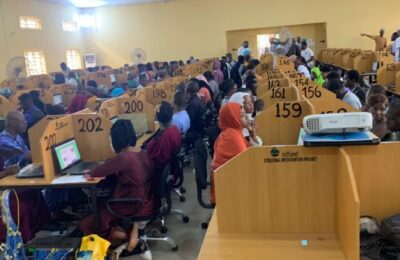Established economic theories has helped the world better understand the environment, enabled scientists and researchers understand and describe many phenomena and has birthed outputs and outcomes that have generally left the world in a better state. Despite these benefits, many established economic theories are perceived to be either ineffective or outrightly damaging, especially in the context of Sub-Sahara Africa. Some of these established economic theories are globalization, competition and demand & supply, also known as market forces theory. The major gap which often leads to the perceived ineffectiveness of these theories within the context of developing economies is the presence of exogenous, remote and unique attributes and variables which may not have been considered or experienced when these theories were been concluded. Such factors are the level of economic development, energy sufficiency, literacy levels and greed of economic units such as the firm and households.
The earliest contributors to the theory of demand and supply, also known as market forces theory,were John Locke, James Steuart, Alfred Marshal and Ibn Taymiyyah (Ekelund & Thornton,1991). The assumptions of the theory of demand and supply is that economic units are rational, at such, orthodox economic policies can influence the behavior of individuals, governments and household(Asogun 2011 & 2014). There is a significant relationship between changes in monetary policies in developed economies with strong and efficient industries and real economic activities in the short term and prices in the long term. In contrast, there continues to be ongoing debates as to whether changes in micro and macro-economic policies affect outputs and consumer behavior in developing economies(Starr, 2005). While established economic theories like demand and supply may hold true in developed economies, the contextual shift may result in some unexplained variables which oftentimes alters expected outcomes in developing economies like those of many Sub-Saharan African countries. For example, the privatization of the telecom service in Nigeria was to bring about lower prices resulting from the presence of many players. While this was the case in the short run, higher supply has not resulted in price reduction in the long run.
Another phenomenon that is described to be good for everyone in the 21stcentury connected world is globalization. Globalization is based on the theory of comparative advantage which admonishes that production units focuses on their areas of expertise or core strengths(Burlacu et al.,2019). Levitt (1983) defined globalization as trade interactions that extends beyond the geographical boundaries of a country. Burlacu et al.(2019) enumerated the prevention of isolation of poor economies, reduction of information asymmetry, improvement of trade speed, integration & cohesion and market efficiency as the advantages of globalization. Conversely, insecurity, poverty, illegal migration, brain drain, environmental pollution, unemployment, and solution mismatch have been itemized as some of the demerits of globalization(Alli et al., 2007).Uncontrolled globalization is detrimental to the economies of SSA countries. This is because these economies are often characterized by weak legal, institutional and regulatory frameworks, high illiteracy levels, households and firms greed, energy inadequacy, weak and fragile political systems, dictatorial tendencies etc. Developing economies are at a disadvantage in a global world because they are not at a stage of development that positions them to benefit from uncontrolled globalization.
The last area of focus of this paper is competition.Globalization and competition are closely related in that globalization fuels competition at a higher level as companies produce for a global market unrestrained by geographical boundaries. Both globalization and competition harms local indigenous companies in SSA because of the unequal expertise and experience between developed and developing markets. The definition of competition is vague and context specific(Listra, 2015). If the meaning of competition changes from context to context, its implies that its benefits would also be context specific. According to Listra (2015), competition and competitiveness are often used interchangeably to describe economic units and their ability to perform in accordance with policy and strategic goals. Strucke (2013) opined that competition advocacy must be able to decode situations where competition is the cause of a problem and not its solution. Is to observed that the advocates of competition and competitiveness do not open up their economies in a way that puts them at a disadvantage. For example, many of these countries holds control of critical sectors such as aviation, finance and banking, manufacturing, power and energy, construction etc. Sub-Saharan African Countries must necessarily combine protectionism with competition in such a way that advances its interest in the global economy.
Conclusion
Theories and models be it economic, scientific or behavioral helps us better understand our environment, anticipate risks and adverse externalities and plan response options. While many established economic theories and models produce anticipated and often times positive outcomes in many developed economies, it is observed that anticipated or positive outcomes do not always result from many of these frameworks in developing economies such as those ofSub-Saharan African Countries. Some of the reason for these unanticipated, and sometimes adverse outcomes are the level of economic development, energy paucity, high levels of illiteracy and shear greed of economic units such as the firm and households. This phenomenon has given rise to the need for more research on the application and applicability of many of these models in sub-Saharan African Countries and adopt a tailored approach in their implementation.
– Augustine S. Akande is a Chartered Accountant, Certified Project Manager, Activist and Public Affairs Analyst.
Email: augustineakande@yahoo.com.
References
Ali, M., Winter, G.S.,&May,D.L. (2007). Globalization: Its effect. International Business & Economics Research Journal, 6(1), 29–32. Retrieved from https://doi.org /10.19030/iber.v6i1.3339
Asongu, S.A. (2014). Why do French civil-law countries have higher levels of financialefficiency?Journal of Advanced Research in Law and Economics, 2(2),94-108.https://doi.org/10.2139/ssrn.2493152
Asongu, S.A. (2014). Are proposed African Monetary Unions optimal currency areas? Real,monetary and fiscal policy convergence analysis.African Journal of Economic andManagement Studies, 5(1), 9-29.https://doi.org/10.2139/ssrn.2493213
Asongu, S.A. (2013). African stock market performance dynamics: a multidimensionalconvergence assessment.Journal of African Business, 14(3), 186-201.https://doi.org/10.1080/15228916.2013.844043
Asongu, S.A. (2014). African financial development dynamics: big time convergence.African
Journal of Economic and Management Studies, 5(2),160-194.https://doi.org/10.2139/ssrn.2493190
Asongu, S.A. (2013), Fighting consumer price inflation in Africa: What do dynamics in money,credit, efficiency and size tell us?Journal of Financial Economic Policy, 5(1), 39-60.https://doi.org/10.2139/ssrn.2493206
Asongu, S.A. (2013), A short-run Schumpeterian trip to embryonic African monetary zones.
Economic Bulletin, 33(1), 859-873. Retrieved fromhttps://doi.org/10.2139/ssrn.2493163
Asongu, S.A. (2013), How has mobile phone penetration stimulated financial development in
Africa?Journal of African Business, 14(1), 7-18.https://doi.org/10.2139/ssrn.2493265
Burlacu, S., Gutu C., & Matei, F.O. (2019), Globalization – Pros and Cons. Journal of Global Policy, 23(3), 122 – 125. Retrieved from (PDF) Globalization – Pros and cons (researchgate.net)
Ekelund Jr., R. B., & Thornton, M. (1991). Geometric analogies and market demand estimation: Dupuit and the French contribution. History of Political Economy, 23(3), 397-418.https://doi.org/Jules Dupuit and the Early Theory of Marginal Cost Pricing on JSTOR
Levitt, T. (1983). The Globalization of Markets.Harvard Business Review, 92-93.The Globalization of Markets (hbr.org)
Theory of supply and demand.The Columbia Electronic Encyclopedia (2013). (2) Theory of Supply and Demand | wafaibrahim – Academia.edu
Listra E. (2015), The concept of competition and the objectives of competitors.Journal of Social and Behavioral Sciences213(2015), 25 – 30.https://doi.org/10.1016/j.sbspro.2015.11.398
Starr, M. (2005), Does money matter in the CIS? Effects of monetary policy on output and prices.Journal of Comparative Economics, 33(3), 441-461.https://doi.org/10.1016/j.jce.2005.05.006
Strucke, M.E. (2013), Is Competition always good? Journal of Antitrust Enforcement, 1(1), 162–197. Retrieved from https: doi:10.1093/jaenfo/jns008. https://doi.org/
Appendix
Research Question
- How efficient are the forces of demand and supply in sun-Saharan Africa?
- To what extent does globalization benefit countries in sub-Sahara Africa?
- Is uncontrolled competition harmful to the economies of Sub-Sahara African countries




